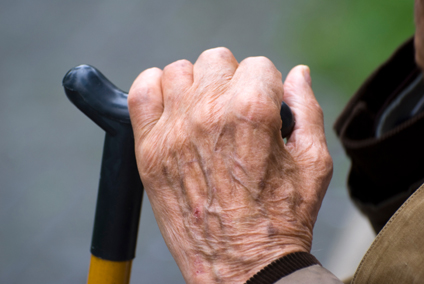For me, one of the most distressing aspects of homebirth is thinking about the experience of the babies.
Their very lives are on the line for no better reason than because their parents are seeking a specific experience. While their mothers wallow in their birth pools, and while their fathers wallow in their empowerment, the babies may be suffocating to death, struggling to extract enough oxygen across a failing placenta to feed their fragile brain cells, or gasping with heads stuck in the vagina while their bodies dangle outside because their mother attempted a breech birth at home, or drowning in a sea of bright red blood, the oxygen so close yet utterly inaccessible because their mother’s uterus has rupture during an attempted VBAC at home, extruding them into the abdomen with no way out and no way to survive.
When the survivors grow to adulthood, might they treat their elderly parents the way they were treated, as a prop in their parents stories. Might they put the lives of those elderly parents on the line to return the favor of valuing experience over their well being?
That thought came to mind reading the narcissistic drivel from M. Landers, a father whose third child was recently born in a home VBAC. Landers mused on great existential questions, like pain and death, in The Tragedy Of Childbirth: If It Hurts, Embrace It
I envision his son eventually writing a piece entitled The Tragedy of Old Age: If It Hurts, Embrace It.
The heart of Landers’ piece is his attempt to explain why he and his wife are cavalierly risking the life and health of a postdates baby in a homebirth. It purports to be deep, but is really nothing more self-indulgent, puerile rationalization:
… People can argue statistics day and night about the safety and ethics of homebirth v. hospital birth or vaginal v. C-section, but in the end I think our prefered [sic] stance really comes out of our capability to accept life-threatening and potentially tragic situations without attempting to control them. No one wants to stand by and watch tragedy befall their loved ones, but it is a constant and real possibilty [sic]. While we understand a lot about the human body and how to “successfully” modify its efforts at the birthing process, the truth is that it knows what it’s up to and often our attempts to improve upon its effects can just as easily thwart an ideal outcome.
Imagine Mr. Landers at age 80, hobbled by arthritis, nearly blind from cataracts and suffering chronic pain from who knows what. He doesn’t know, because his son, who is now his caregiver, refuses to take him to a doctor anymore, because all that doctor did was implore the son to buy expensive prescription medicines to ease his father’s arthritis, pay for expensive surgery to remove his cataracts, and subject his father to expensive tests for no better reason than to figure out cause of his chronic pain. The doctor has gone so far as to play the “dead father card,” warning that his father might die without expert care.
How would Mr. Landers feel then if his son exhorted him thus?
Dad, this is old age. If it hurts, embrace it.
If Landers wept for access to cataract surgery, desperate to be able to see, read and write again, would he be satisfied with this?
My preferred stance on this issue really comes out of my capability to accept life-threatening and potentially tragic situations without attempting to control them. I’m sorry that you’re nearly blind, Dad, but you ought to trust vision more and not attempt to control it.
And if Landers begged for access to medical care, expressing his fear that he might die as a result of whatever was causing his chronic, debilitating pain, would he be mollified by this?
Dad, no one wants to stand by and watch tragedy befall their loved ones, but it is a constant and real possibility. While we understand a lot about the human body and how to “successfully” modify its efforts at the aging process, the truth is that it knows what it’s up to and often our attempts to improve upon its effects can just as easily thwart an ideal outcome.
It sounds unspeakably harsh and cruel, doesn’t it? Yet how different is that from Landers’s own philosophy on risking the death of his son at homebirth?
Not very.
We understand how heartless and selfish the son is because we can easily envision ourselves in the position of an elderly Landers. We can imagine the grief at his loss of sight, his chronic pain and his fear of death. In contrast, it is difficult to appreciate the position of a homebirth baby, since we know that we will never again face the risk of injury and death at our own birth. But just because it is easier to put ourselves in the place of an adult instead of a baby, does not mean that the baby is suffering any less.
We quail at the thought of being treated like the elderly Landers; we ought to quail at the thought of being treated like Landers treated his son.
Landers better hope that his son give more thought to his comfort, safety, and very life, than Landers gave to him.


